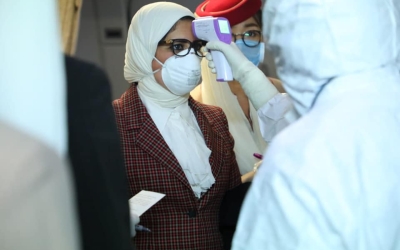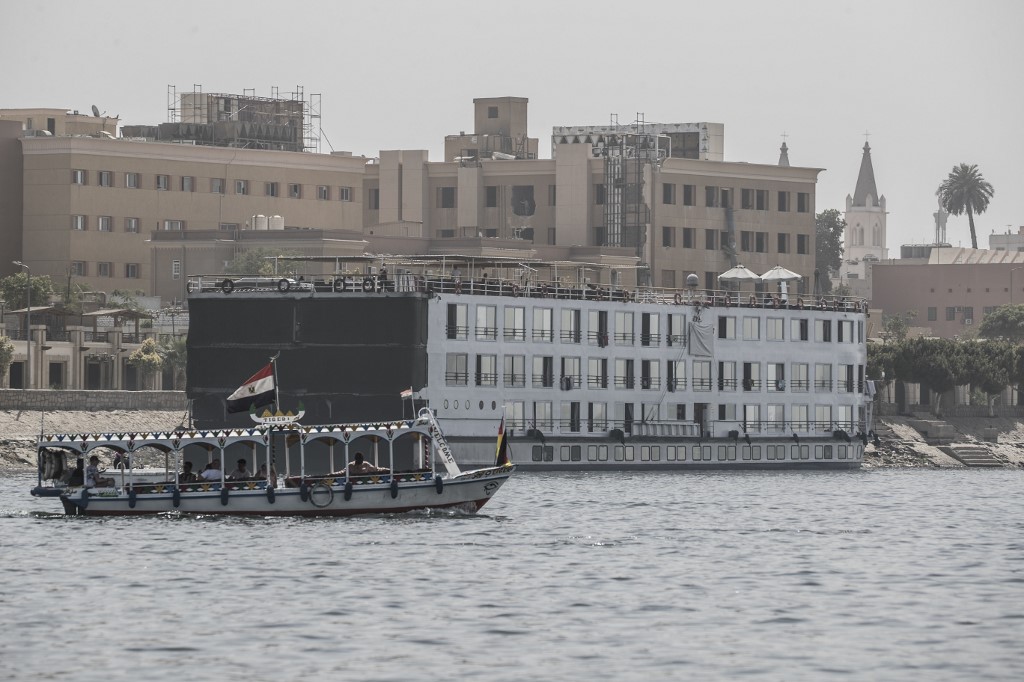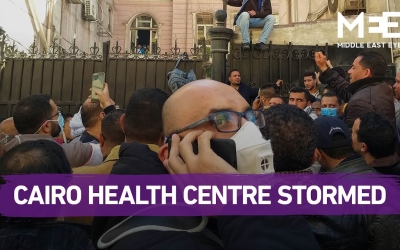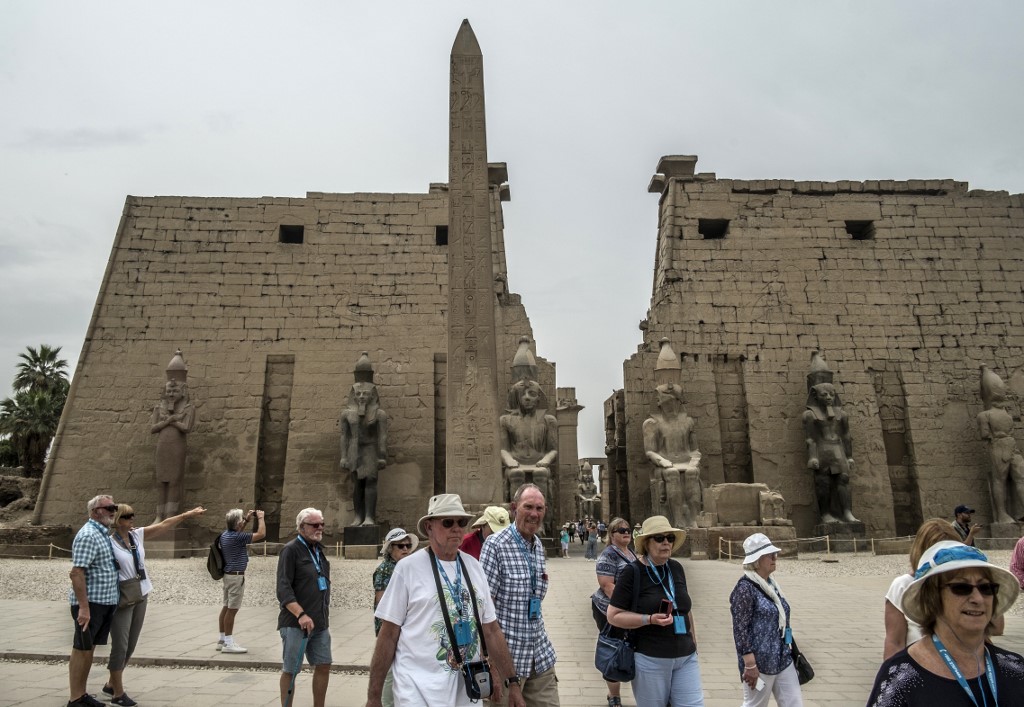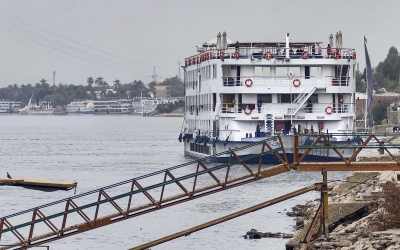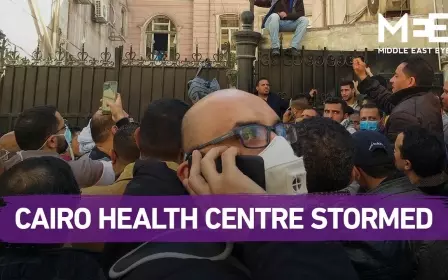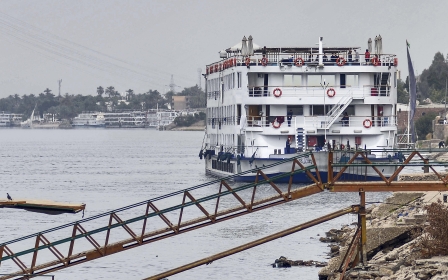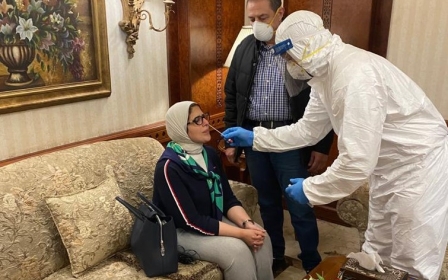Panic in Luxor: Coronavirus outbreak in Egypt found to be centred on ancient city
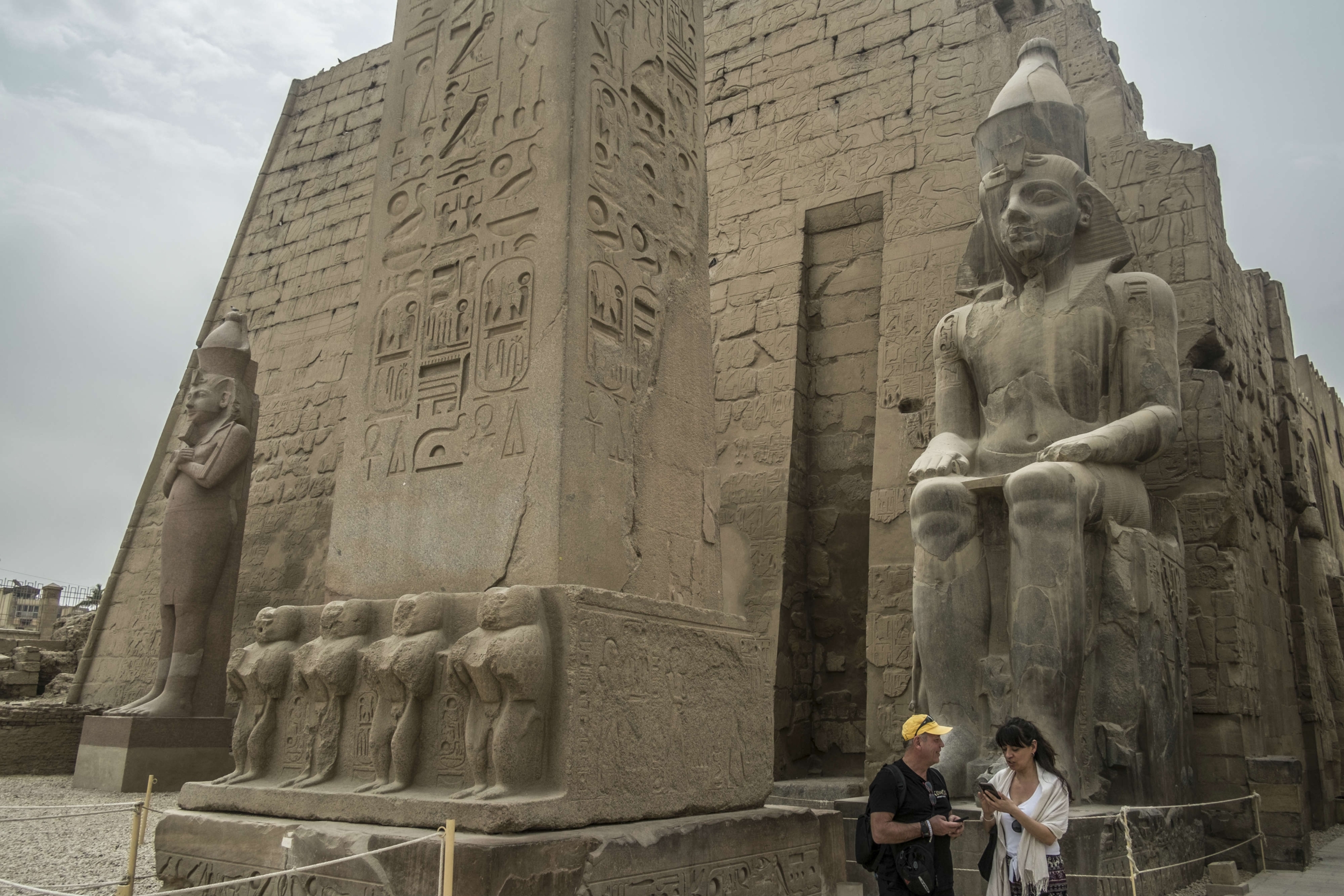
Egypt's ancient city of Luxor has witnessed a semi-lockdown since Monday as tours of monuments, cultural events and balloon trips were cancelled in the wake of the coronavirus outbreak.
Specialised medical teams from Cairo and Qena have descended on the lobbies and restaurants of hotels and cruises in the area to stage haphazard and random tests among both workers and guests.
The arrival of the medics along with tour cancellations has led many tourists to leave the upper Egyptian city and either head to Cairo or the Red Sea resorts of Hurghada and Sharm al-Shiekh.
On Monday, the health ministry said the total number of confirmed cases in Egypt had risen to 59.
From the start of the worldwide outbreak earlier this year, the Egyptian government denied the existence of any positive cases in Luxor and instead began to prepare for the winter season, but this blinkered focus on bringing in hard currency has now backfired.
On Friday and Saturday, the city, home to several of Egypt’s most iconic temples, the Valley of the Kings and King Tutankhamun’s tomb, was announced as the source of most of the cases in Egypt.
Forty-five passengers and crew members aboard a Nile cruise ship, the A Sara, tested positive for the coronavirus.
They were escorted off the ship on Saturday by the military and transported to one of the country’s isolation hospitals in Marsa Matruh, on the north coast.
Authorities on Tuesday said that 25 of those who had initially tested positive for the virus had since tested negative.
On Wednesday, Egyptian authorities said that 46 French and US tourists who had remained quarantined on the A Sara vessel had flown home.
Extremely scared
The outbreak of the virus, as well as the random medical tests, has halted life in most of the usually crowded city, with the exception of the one-day trips organised by tourist companies when visitors spend a whole day in Luxor and then return to either Cairo or the Red Sea.
Thomas, a British tourist from Manchester, told Middle East Eye that after their experiences his group decided to force their tourism company to relocate them back to Cairo to spend the rest of their vacation there.
“We woke to find armed plainclothes policemen closing the hotel doors and telling us that we could not leave until everyone was checked," he said.
"At first, we thought that there were people who had tested positive, but later the management just chose some Egyptian guests and convinced them to go and do the tests.”
After four hours, the medical team left the hotel, having taken samples, Thomas added, saying that his family had been extremely scared and decided to leave the city, a decision that other families agreed upon.
Disaster for locals
Luxor has been striving since the turmoil unleashed by the country's revolution in 2011 to regain its shine as a touristic destination.
Mohamed al-Asaby, an employee at the Cairo-based Chamber of Tourism, told MEE that the recovery was now under threat after 70 to 80 percent of reservations in both hotels and cruises ship were cancelled over the last 10 days.
Tourism is one of Egypt’s main sources of hard currency, with the winter season in Upper Egypt signalling peak season in the ancient cities.
Thousands of locals in the cities are economically dependent on tourism as their source of living.
The cruise ships carry tourists from Luxor, passing by several rural areas like Edfu and Kom Obo where there are two famous temples, and then descending to Aswan in the south.
Along the journey, they provide a major source of income for locals in the winter season, with many males and females employed as seasonal cleaners, package handlers, drivers, kitchen assistants, or even tour guides.
“The owners of the cruise ships usually have few permanent staff, but hire the rest at the beginning of every new season,” said Sameh, a cruise ship worker who was laid off by his company after 50 percent of their bookings were cancelled.
“This is disastrous for many households, not only in Luxor but also in all of upper Egypt, many young men from Qena and Asyut come to Luxor and Aswan to work in this season.”
'There should have been checkups'
Another worker who resigned after fearing for his safety told MEE that he and nine other staff had quit over concerns they might get infected by the virus amid a lack of awareness or social insurance if they became ill.
"There was panic after we heard that one case infected 33 Egyptians, all of whom were workers,” Ibrahim, who worked on the Steigenberger Minerva, said.
However, Ismail, who still works on one of the British-owned cruises, said that he would be working until the season ended, otherwise he would return home with empty pockets.
“Several of bookings have been cancelled," he said. "Currently, the companies have decreased the number of packages and are looking to attract local groups [Egyptians] with lower prices in order to save what can be saved.”
Ismail’s cousin, Arabi, who works as a freelance tour guide with companies who book him, said that since the announcement of the semi-outbreak on Saturday, only a few groups came to the Karnak Temple where he works.
“Currently most of the tourists at the Temple are either on the one-day tours or are solo travellers,” he said.
Both Ismail and Arabi blame the government for the current situation.
“There should have been checkups on the tourists before they enter the country, so as to avoid all this mess,” they said.
'There are no campaigns or announcements'
In addition to the fear of going back to the post-2011 period, where tourism was negatively affected due to the political turmoil, sheer panic has overwhelmed many locals due to the indecision and lack of precautions implemented by the government.
“They kept ignoring that there were possible cases until people started to be sick,” Sabry, a high school student in Luxor told MEE.
“There are no campaigns or announcements to show what people should do in case a serious outbreak takes place.”
“Not all people here have access to the internet and can browse the WHO websites,” he said, adding that there are no measures being taken in hospitals or schools to contain the spread of the deadly virus.
The concerns were echoed by Kareem al-Shams, a doctor at Luxor General Hospital.
“None of the staff, including me, are trained to deal with a corona-infected case," he told MEE.
"We don’t have suitable equipment for basic surgeries and operations, let alone a deadly and highly contagious virus.”
“We must get dozens of cases of people complaining of cold symptoms and we send them away with antibiotics or flu medicine.
“Our reception for the emergency room is built for 100 people but more than 300 people wait in it.
“Imagine if there is one positive case,” he added.
Middle East Eye delivers independent and unrivalled coverage and analysis of the Middle East, North Africa and beyond. To learn more about republishing this content and the associated fees, please fill out this form. More about MEE can be found here.


